
Quartz watches VS Automatic watches – Complete Guide
There is an endless selection of watches to choose from on the market. There are dive watches, chronographs, dress watches, and much more. The list can be made very long. Apart from the style and design of the watch, you also have the consideration of which movement you want your watch to have.
Watches can be categorized into two main categories: quartz and mechanical. And in the mechanical category, you have hand-wound and automatic. However, most of the mechanical watches that are made and sold today are automatic.
As such, that’s what we’ll look closer at in this article. Quartz or automatic watch – which is best and which should you choose?
What is a quartz watch?
Simply put, a quartz watch is a timepiece whose movement is powered by a battery. To use Wikipedia’s definition:
“Quartz clocks and quartz watches are timepieces that use an electronic oscillator regulated by a quartz crystal to keep time. This crystal oscillator creates a signal with very precise frequency, so that quartz clocks and watches are at least an order of magnitude more accurate than mechanical clocks.”
What this means is that the crystal oscillator creates a signal every second, which is what causes the second hand to tick.
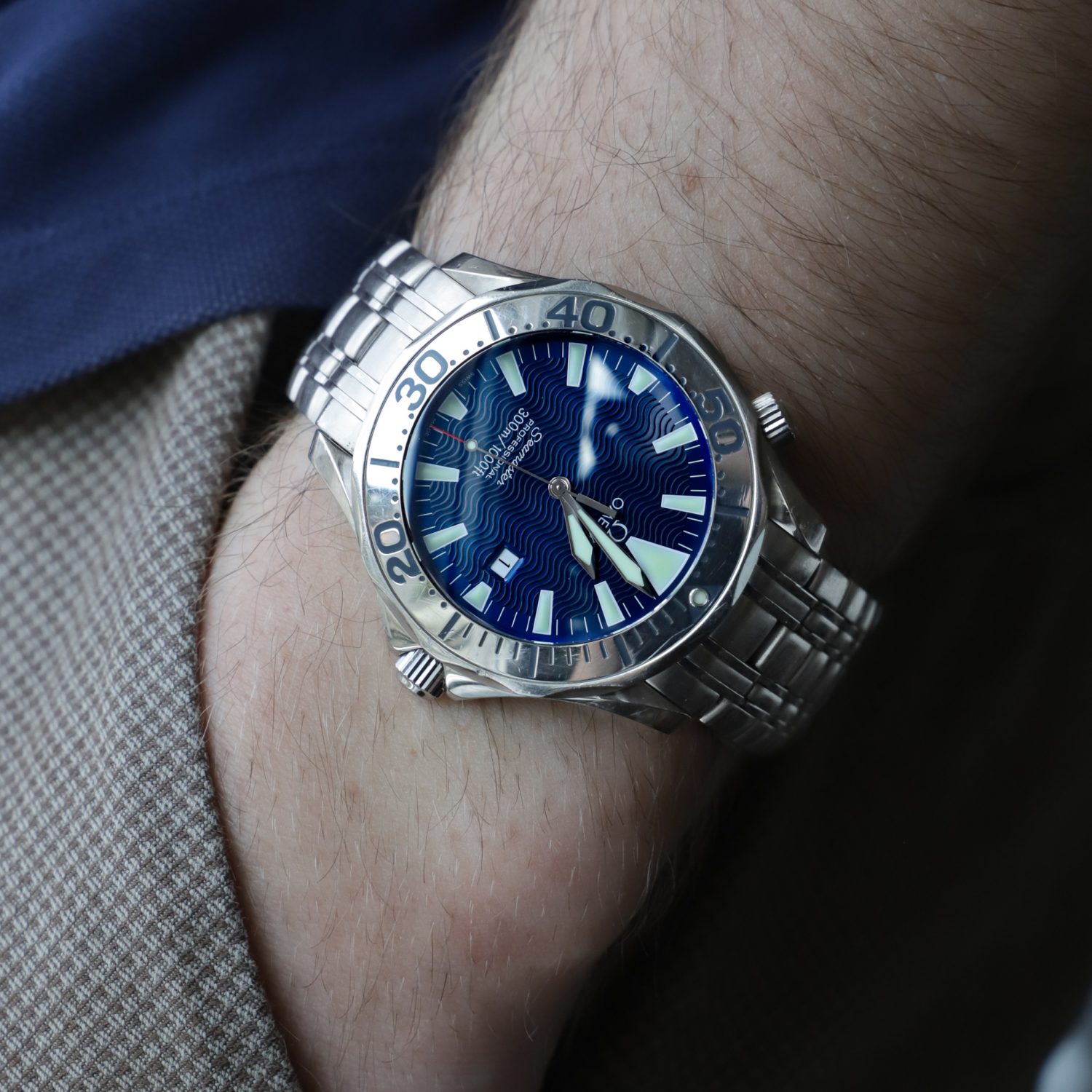
What is an automatic watch?
An automatic watch features an automatic movement. This is a completely mechanical movement that gets its energy from the movements of the wrist. The key component in an automatic movement is the rotor. When the rotor inside the movement rotates, it winds the mainspring which is what gives the movement power. So as long as the watch is worn, the watch gets the energy it needs. This is why automatic watches are often referred to as “self-winding”.
Prior to automatic movements, the mechanical movements were hand-wound, meaning that they had to be manually wound on a regular basis to provide the watch with the energy required to function.
Unlike a quartz watch that ticks one time per second, the ordinary beat rate of automatic watches is a rate of 21,600 beats per hour (6 beats per second), or 28,800 beats per hour (8 beats per second). Most automatic watches beat at a rate of 18,000 to 28,800 vibrations per hour. This is crucial because automatic watches have completely different construction and functionality than quartz movements.
Now that we have understood the basics of quartz and automatic movements, it begs the question: which is best?
The history of automatic and quartz watches
Rolex is attributed to inventing the automatic watch. Although that is true with modification, Rolex is definitely responsible for introducing the automatic watch to the public and popularizing it. In Rolex’s own words:
“In 1931, Rolex invented and patented the world’s first self-winding mechanism with a Perpetual rotor. This ingenious system, a true work of art, is today at the heart of every modern automatic watch.”
Automatic movements had been made before Rolex introduced its creation, but they were not as good and functional as the automatic movement with a center-mounted rotor that Rolex introduced. Today, almost all automatic watches are built based on Rolex’s automatic movement concept.
Seiko is responsible for having invented the first quartz watch. On December 25, 1969, Seiko released the Seiko Quartz Astron 35SQ which became the world’s first quartz timepiece. This would come to become the start of the “quartz crisis” in the 1970s where far more affordable (and accurate) quartz movements competed with Swiss mechanical watches. Many people believed that Swiss mechanical watches would die out due to the declining sales of Swiss mechanical watches. But whilst quartz watches are considered superior from a functionality standpoint, automatic watches offer other benefits to their owners that go beyond simply telling the time.
Quartz vs automatic watch – which is best?
Naturally, there’s no right or wrong here. At the same time, the debate between quartz and automatic is a commonly discussed topic within the watch industry. Automatic movements arrived long before the invention of quartz, but it’s still safe to say that once quartz came around, it revolutionized the watch industry.
Both types of watch movements have their own sets of pros and cons, and both are highly popular on the watch market. If we look at the number of timepieces made with the respective types of movement, quartz is a clear winner. Far more quartz watches are being manufactured than automatic. At the same time, the reason for this is that affordable watches are produced in far greater quantities than more expensive ones. And because quartz movements are much more affordable to make, it is the go-to choice for the majority of cheap watches.
In general, watches that cost below 100 dollars are almost always quartz. And the majority of higher-end watches, priced over 1000 dollars, are almost always automatic.
Let’s compare automatic and quartz watches and their respective pros and cons.
Quartz vs automatic – accuracy
Let’s begin by looking at accuracy.
Because quartz watches are built to beat once per second, they naturally get a greater accuracy than automatic watches. Whilst some automatic watches are more accurate than certain quartz watches, these are exceptions to the rule. In general, quartz watches are always more accurate than quartz watches. Ultimately, an automatic watch consists of hundreds of small and delicate parts which are assembled to work together in harmony. Quartz watches consist of considerably fewer parts and are driven by one primary component, which is the quartz crystal.
So with that said, cheap quartz watches can (and often are) more accurate than expensive automatic watches that cost thousands of dollars. In general, if you want an automatic watch that gets as close as possible to the accuracy of quartz watches, you need to spend a considerable amount of money.
As a general rule, quartz is always more accurate than automatic. Therefore, if you’re only after accuracy in a timepiece, quartz is the best option.
A quartz watch may lose or gain a few seconds per month. But an automatic watch may lose several minutes per month. To buy an automatic watch that has superb accuracy, you will need to spend tens of thousands. Rolex watches, for example, have an accuracy of +/-2 seconds per day. That is still 1 minute in a month.
Winner: quartz
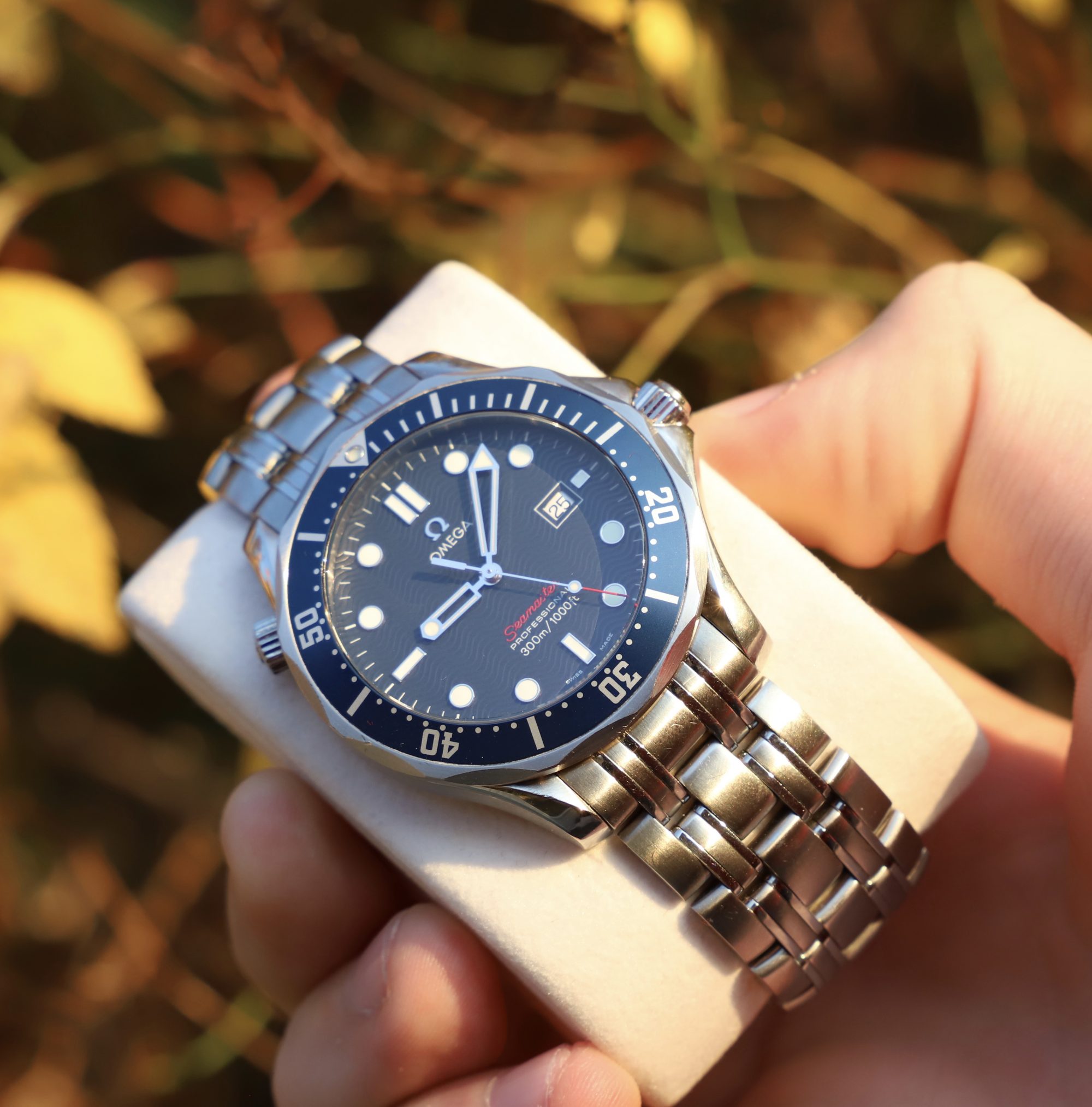
Quartz vs automatic: price
When talking about the price, quartz will always be the clear winner. You can find quartz watches for as little as 20 or 30 dollars whilst automatic ones normally start at around 100 dollars. At the same time, the most affordable automatic watches tend to have rather poor accuracy, at least when compared to quartz watches in the same price range.
Automatic watches are more expensive than quartz due to the complexity of making them. The number of components in quartz movements can be in the tens but the components in automatic watches are in the 100s. As such, it’s much more difficult and time-consuming to build an automatic movement than it is to make a quartz movement. In addition, automatic watches normally need to be assembled by hand, whereas the process of making quartz can be automated in a completely different way. This will ultimately affect the cost of the watch and makes quartz much more affordable than automatic.
Winner: quartz
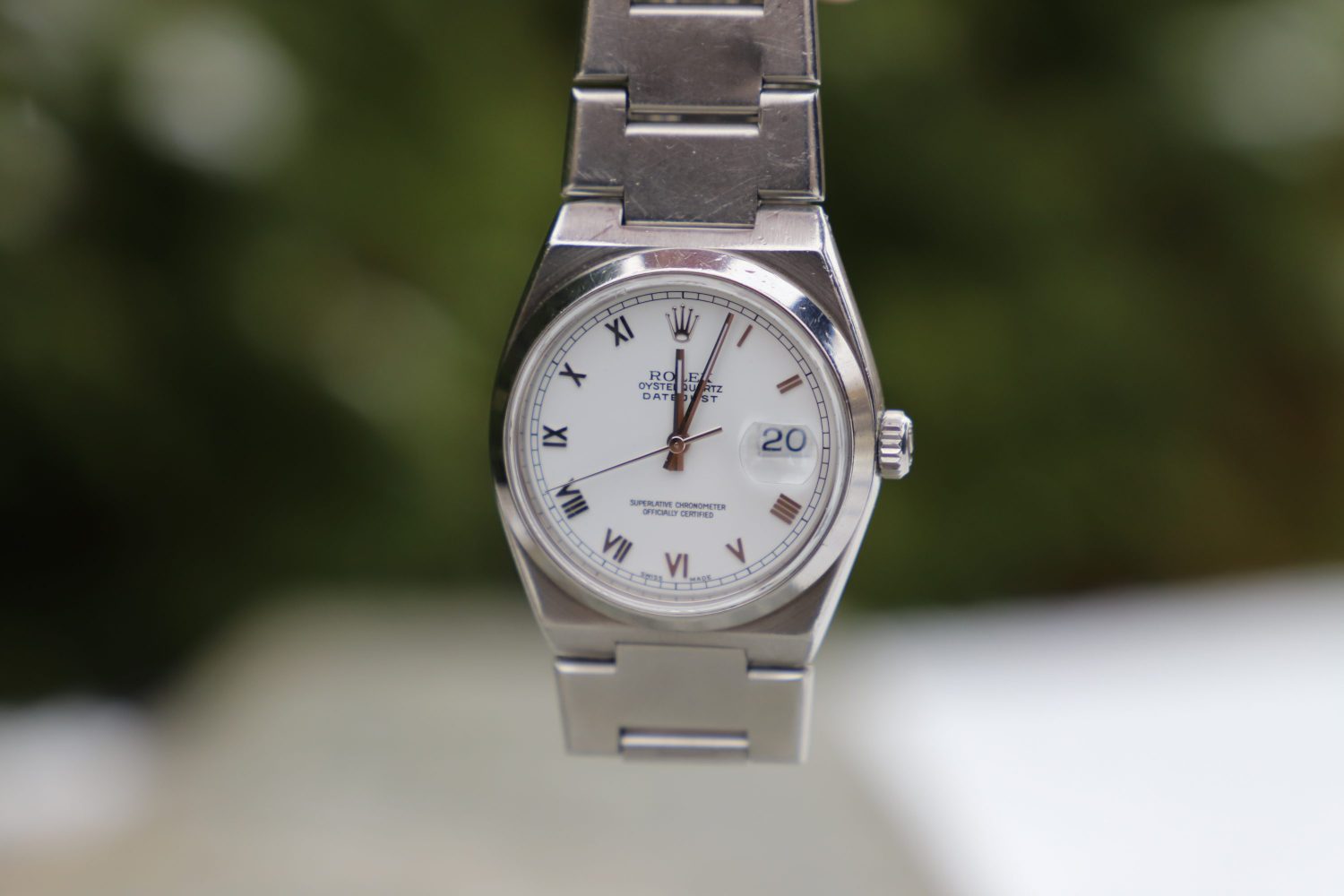
Quartz VS automatic: Robustness
This is a tough question that can be answered in many different ways. Firstly, because quartz watches contain much fewer components than automatic, there’s less risk that the components inside a quartz movement will break.
Quartz watches are known to be very robust and durable due to their relatively simple constructions. They can handle shocks, and bangs, and last for a long time. When it comes to harsh environments, like extreme cold and extreme heat, quartz watches do not tend to have the same level of durability as automatic watches. Because automatic don’t contain any electrical components, they tend to last longer and better in extreme temperatures.
Because the span of automatic watches is so wide, there are less robust and more robust automatic watches. For example, Rolex watches are known to be some of the most robust and durable timepieces on the market, and these are automatic. At the same time, they also come with hefty price tags.
Winner: both
Quartz VS automatic – longevity
In terms of longevity, automatic watches are the clear winners. Because quartz watches contain electronic components, their longevity is limited. Yes, it is possible to repair quartz watches, but in some cases, you will need to replace the whole movement, and repairing them is just not worth it as opposed to just buying a new one.
A high-quality automatic watch can last for decades, even for generations when maintained and taken care of properly. On the contrary, automatic watches will need to be serviced more frequently than quartz watches to replace worn-out parts and add new lubrication. But automatic watches will long outlive quartz watches.
Moreover, since a quartz watch gets its energy from a battery, it will need to be replaced relatively frequently, about every other year, depending on the watch you have. Yes, an automatic watch will need to be serviced, but a high-quality automatic watch only needs a service every 5 or 10 years depending on the watch you have. On the same token, quartz watches require very little maintenance. Whilst disassembling and reassembling an automatic watch to service it is a tedious process, all you need to do with a quartz watch is to change the battery and you’re good to go.
If you’re looking for a watch that can work as an heirloom that you can pass on from generation to generation, an automatic watch is definitely the way to go.
Winner: automatic
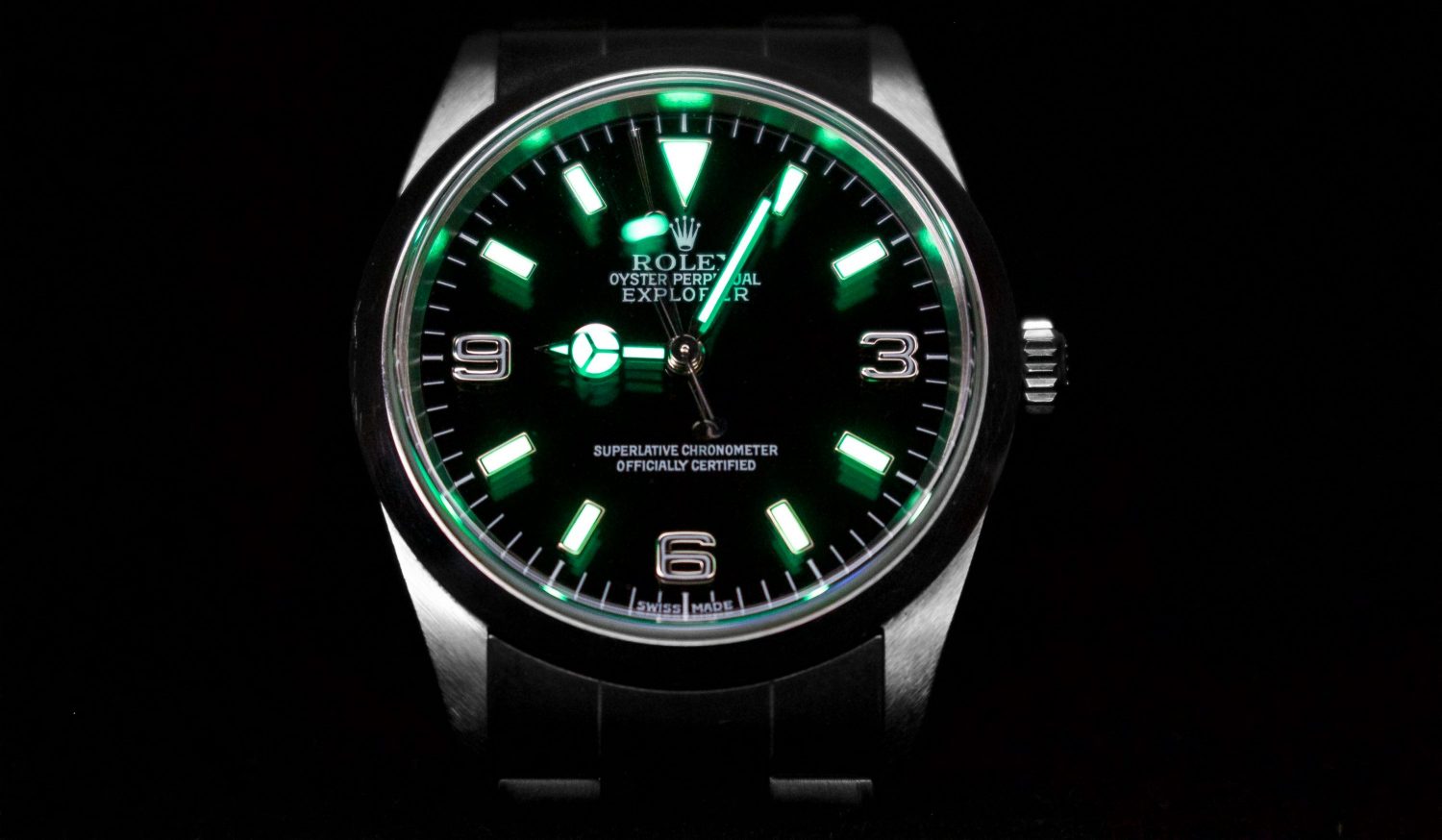
Quartz VS automatic – craftsmanship and appeal
This is where automatic watches are the clear winner and the main reason why people choose automatic over quartz.
Watch enthusiasts and those who appreciate fine crafts-and workmanship will be more drawn towards automatic watches than quartz. Automatic watches contain hundreds of one and delicate components and require exceptional craftsmanship and expertise to assemble. And the more expensive the automatic watch is, the greater level of craftsmanship you will be able to find in the watch.
There’s just something special about wearing a fine mechanical watch that you know requires great effort and craftsmanship to build.
On the contrary, quartz watches are often highly mass-produced and often also completely built by machines. As such, there’s a limited connection and appreciation for quartz watches from that point of view.
Automatic watches can be seen as art, carefully crafted with a high level of precision, requiring care and attention to detail to build. With that in mind, you get a completely different sense of enjoyment out of wearing the watch. With a fine automatic watch, it’s not just about getting a tool to measure the time, it goes far beyond that. Quartz watches, on the other hand, predominantly tend to be tools of measuring the time and don’t do much else. Of course, there are exceptions even for quartz, but for the most part, this is true.
And that’s also the reason why mechanical and fine watches are so appreciated, in particular by watch enthusiasts.
If you enjoy nice things and are intrigued by the art of fine watchmaking, then an automatic watch is the obvious choice.
Winner: automatic
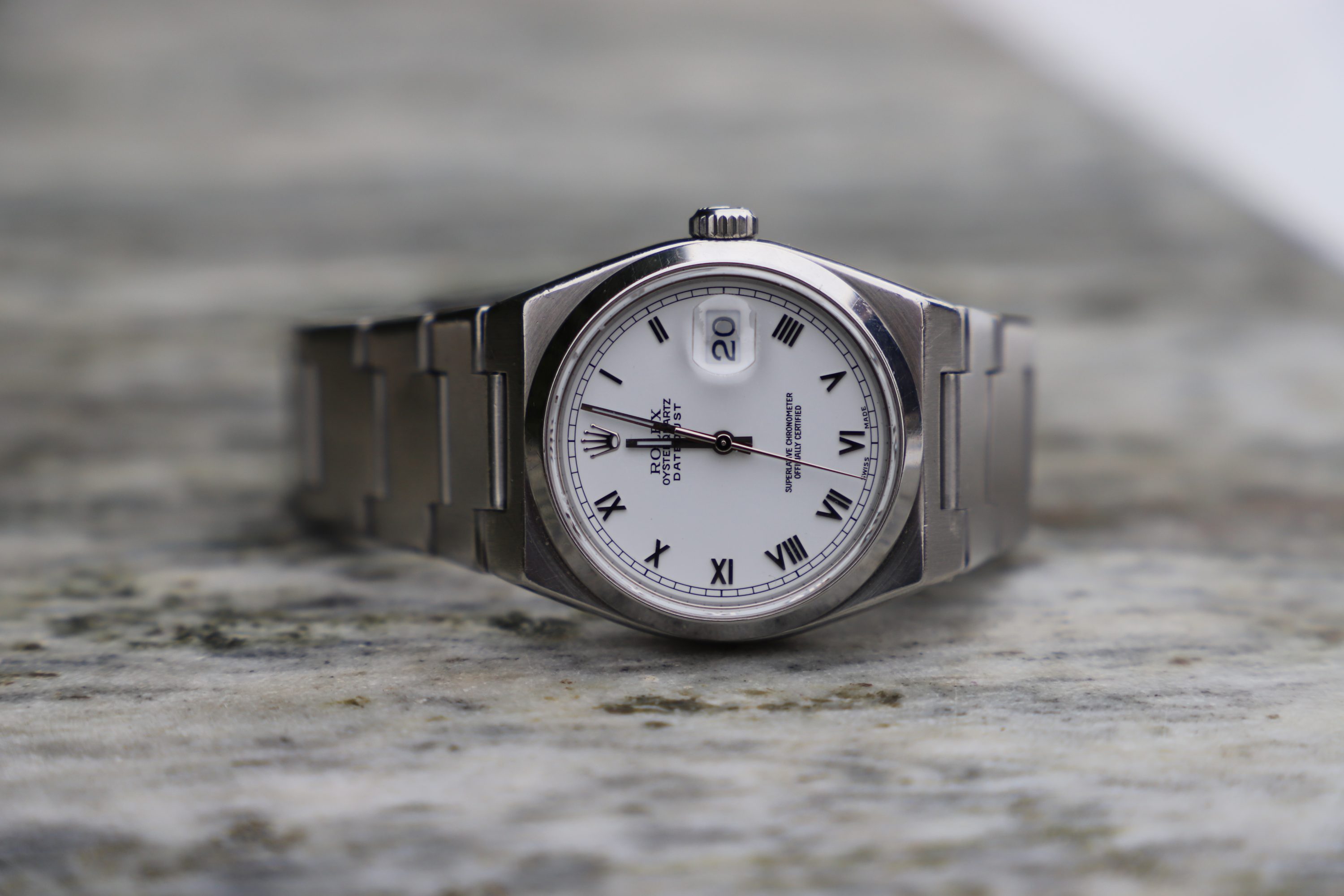
Quartz VS automatic: prestige
In the debate of prestige, automatic watches are the clear winner.
Almost all luxury watch brands exclusively make automatic watches, with some exceptions. The history of mechanical watchmakers is much longer than that of quartz and thus carries greater importance in the history of watchmaking. Whilst automatic watches didn’t come around until the 1930s, watchmakers previously made hand-wound mechanical movements. They are built on the same mechanical principles, only that they don’t have rotors.
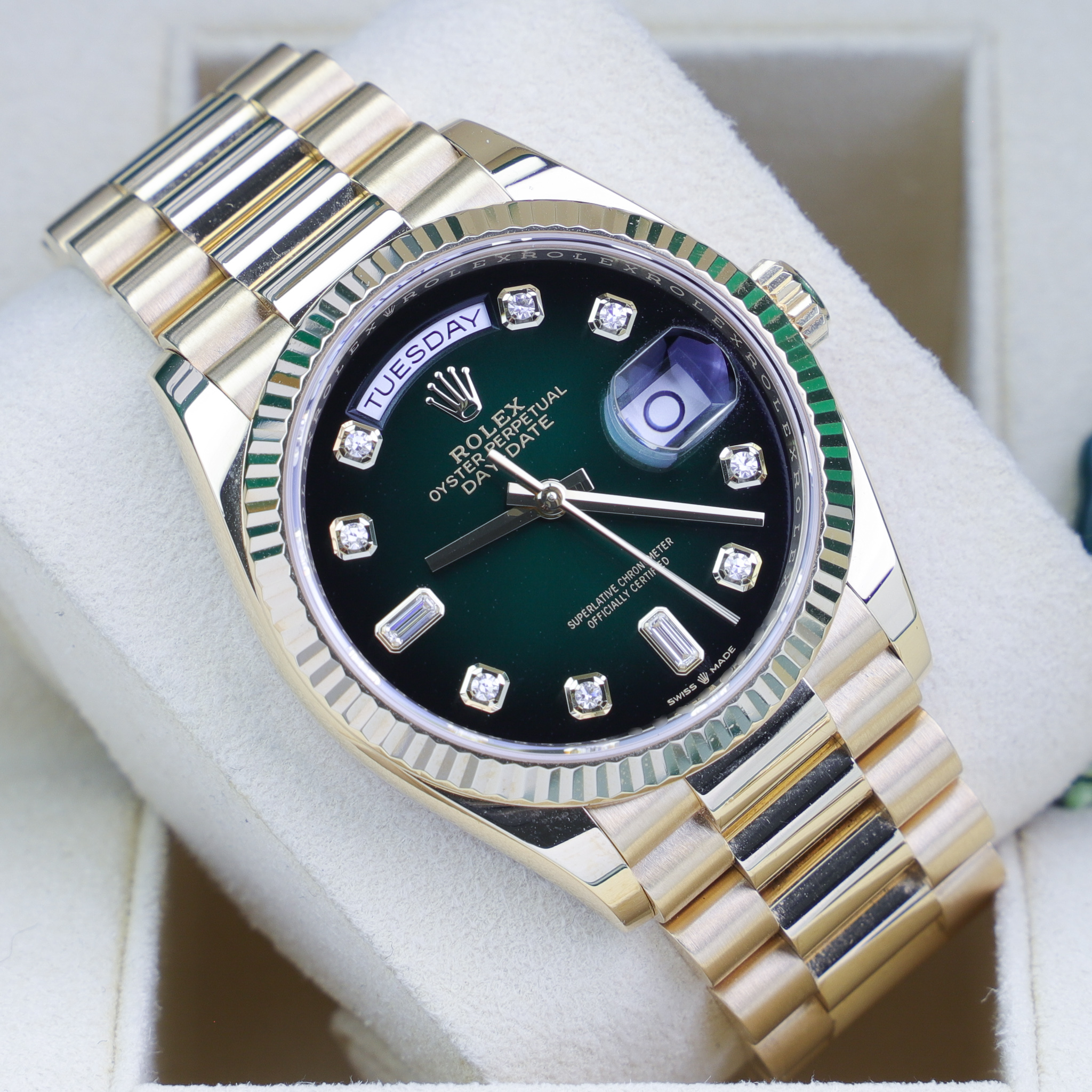
Moreover, quartz is mainly associated with mass-produced and affordable timepieces, although there are some really expensive and fine quartz watches as well.
But most importantly, it is about the complexity of making an automatic watch that contributes to its prestige and appeal. Making most quartz watches doesn’t require anywhere near the complexity and expertise of making an automatic watch. And assembling an automatic watch versus quartz cannot even be compared.
The fact that most luxury brands primarily make automatic watches, combined with the complexity and prestige of fine mechanical watchmaking ultimately makes automatic watches more prestigious and luxurious than their quartz counterparts.
Winner: automatic




